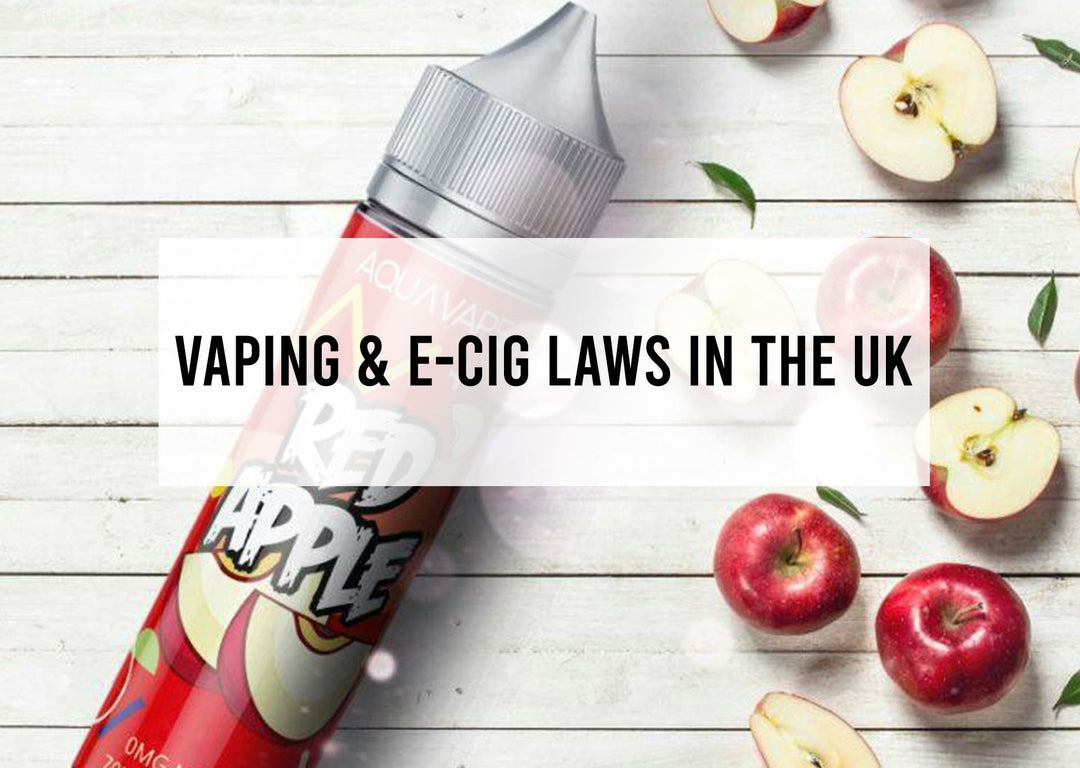Vaping & E-Cig Laws in the UK
May 23, 2023

Vaping & E-Cig Laws in the UK
It’s been a little over 10 years since electronic cigarettes became a thing in the UK. The industry’s growth curve since has been nothing short of phenomenal, taking the country by storm. As of 2019, the number of vapers in the UK was hovering on the edges of 4 million (3.6 million people to be exact), up from 700,000 in 2012. With the increasing popularity of e-cigarettes, the government has moved in to establish a set of new vaping laws. We took it upon ourselves to break it down for you, so here is what you need to know.
Vaping Age Restrictions
To be eligible to purchase e-cigarettes or e-liquids in the UK, you must be aged at least 18 years. Vape adverts are also prohibited from featuring models who appear to be under the age of 25. The essence is to dissuade underage people from taking up vaping.
Vaping Product Restrictions
Vaping products in the UK are subject to various restrictions intended to protect consumers. For one, the Tobacco and Related Products Regulations 2016 banned the use of diacetyl in all e-liquids. Second, all e-liquids should contain a nicotine concentration not exceeding 20mg/ml. As well, the capacity of e-liquid bottles should not be more than 10ml, with cartridges and clearomisers capped at a maximum of 2ml. Vape products are required to adhere to minimum quality and safety standards, and the packaging and labelling on e-cigarette products should furnish consumers with information necessary to arrive at informed decisions. Every e-cigarette company is also expected to submit details about their products to the UK Medicines and Healthcare products Regulatory Agency (MHRA) for approval six months prior to making them available to the public.
Where am I allowed to Vape?
The laws and restrictions governing the use of electronic cigarettes are slightly different from those applied on traditional cigarettes. The 2007 ban prohibiting smoking within the workplace and in public spaces does not extend to vaping. However, this does not mean you are free to light up anywhere you feel like, which takes us to the next point…
Vaping in Public Spaces
At the time of publishing, there is no legal ban on vaping in public areas. But vapers are encouraged to be mindful when vaping around other people.
Vaping Indoors
Again, the UK does not have any laws in place restricting the use of e-cigarettes in indoor spaces. However, and this applies to most points here, you will find many spaces have their own set of rules you are required to abide by. Each situation is unique and ought to be approached with consideration of the people around you.
Vaping at Work
The rules regarding vaping at the workplace differ from one job to the next. People who work in an office could be subject to different rules from those who ply their trade outdoors or in a customer-facing role such as a shop or restaurant.
Vaping in Pubs
Vaping in pubs is not restricted by law. But most pubs these days treat vaping the same way they do smoking by designating special areas for vaping patrons. Not every pub has this provision, though – some do not permit vaping indoors at all.
Vaping on Public Transport
There are no specific UK regulations restricting the use of e-cig devices on public transport, but you will rarely come across a train or bus company that has an open vaping policy these days, be it on board or at the station. While it was once allowed on most platforms, almost all train companies introduced vaping laws in 2015 restricting the use of e-cig devices on board. It’s even stricter on planes.
Vaping while Driving
No one will police you regarding how you use vape devices while on the road. But better be careful as driving without due care and attention whilst vaping could set you back £2,500 in police fines and see you get up to nine penalty points on your license. The police say vaping is a physical and mental distraction that has the potential for severe consequences. So woe unto you if an officer determines you were not in full control of your vehicle as the fine or punishment is left to their own discretion.







